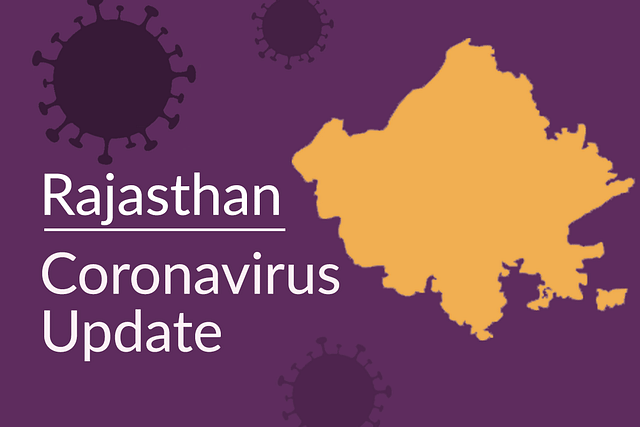
Here Is What Rajasthan’s Bhilwara Could Be Doing Right In Its Fight Against Covid-19
The strict measures in the containment of Covid-19 in Bhilwara seem to have been effective so far — a strategy that other states can emulate.
Earlier this week, Union Cabinet Secretary Rajiv Gauba pointed to the Bhilwara example of fight against Covid-19, and suggested that it serve as a possible model to contain the spread of coronavirus in places that are emerging as hotspots.
The first case of Covid-19 was reported in Bhilwara on 19 March. Cases spiked in the textile town of Rajasthan, which emerged as the second biggest hotspot in the state with 27 cases.
Reports point that there has been only one new Covid-19 positive case in Bhilwara since 30 March. The strict measures in the containment of Covid-19 seem to have been effective so far.
According to this report, Gauba pointed out that it is an effective containment strategy, which could be explored by other states towards adoption of the measures involved in the containment of Covid-19.
The health authorities in Bhilwara have taken a three-pronged approach to fighting of Covid-19 in clusters. Strict implementation of the curfew, sealing the containment zones at their borders, and ceasing vehicular movement are among some of the steps.
The second layer of this approach included the identifying of clusters and “intense mapping of contacts”, isolating high-risk people and quick sample collection.
The third layer of the approach was: a massive screening exercise across the population to detect symptoms.
For the screening of people, 2,000 teams plunged into action, going door to door. Home quarantine was imposed on those who were showing ‘influenza like’ symptoms.
According to Harendra Mahawar, Superintendent of Police, Bhilwara, who has been quoted in this report, the city administration is working on a war-footing — the imposition of curfew, and the work of police “in surveying colonies where visitors to Bangar Hospital, where it all began, might be staying.”
To map the people who had consulted the Covid-19 positive doctor at Bangar Hospital, Bhilwara police reached out to more than 5,000 people. Screening of patients at the in-patient department (IPD) and out-patient department (OPD) was done. Nearly 6,000 people were identified in a matter of two days and put in isolation to break the chain.
The same report quotes Rajasthan Chief Minister Ashok Gehlot as saying: “people with travel history or any contact with positive patients are being isolated and checked. We sealed the borders the day we got to know about the case of the doctor in Bangar Hospital being positive with the virus in Bhilwara and it is becoming a learning ground for us.”
The Bhilwara administration is now ensuring that people get all essential items at their doorstep. Shops, dairies and even medical stores will be closed. People will directly call the city administration for their needs, such as medicine, food or other essential items. To make this run smoothly, control rooms involving several departments are being operated.
According to the District Magistrate, Bhilwara, who has been quoted in the Mint report,“2.5-3 million screenings have been done in the past few days”. The city administration receives daily reports. The screening of people will continue“till the cases come to zero”.